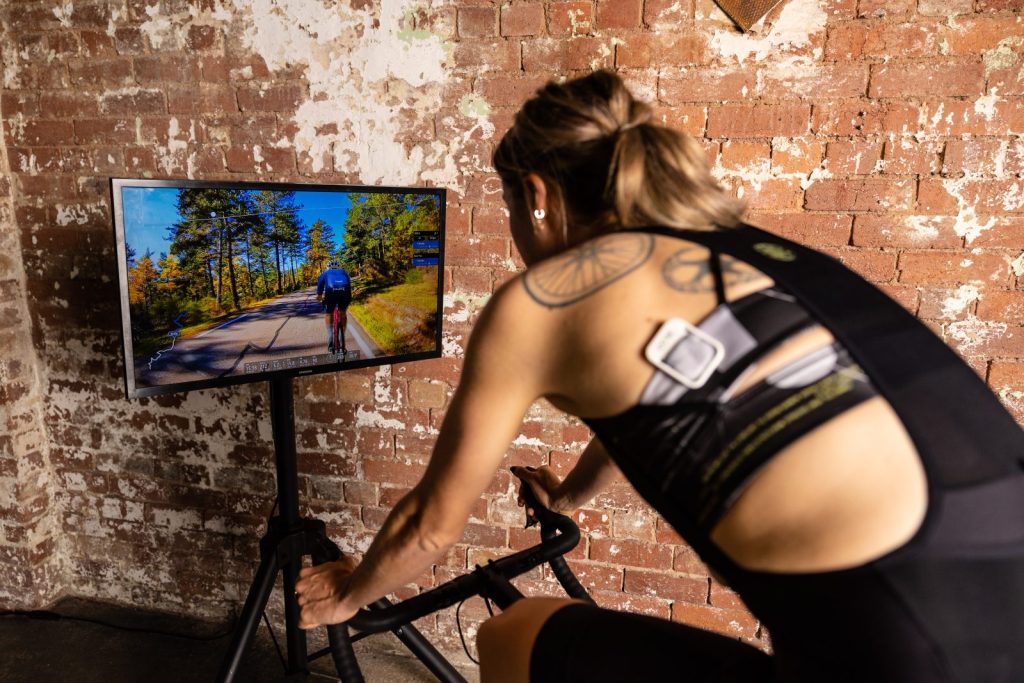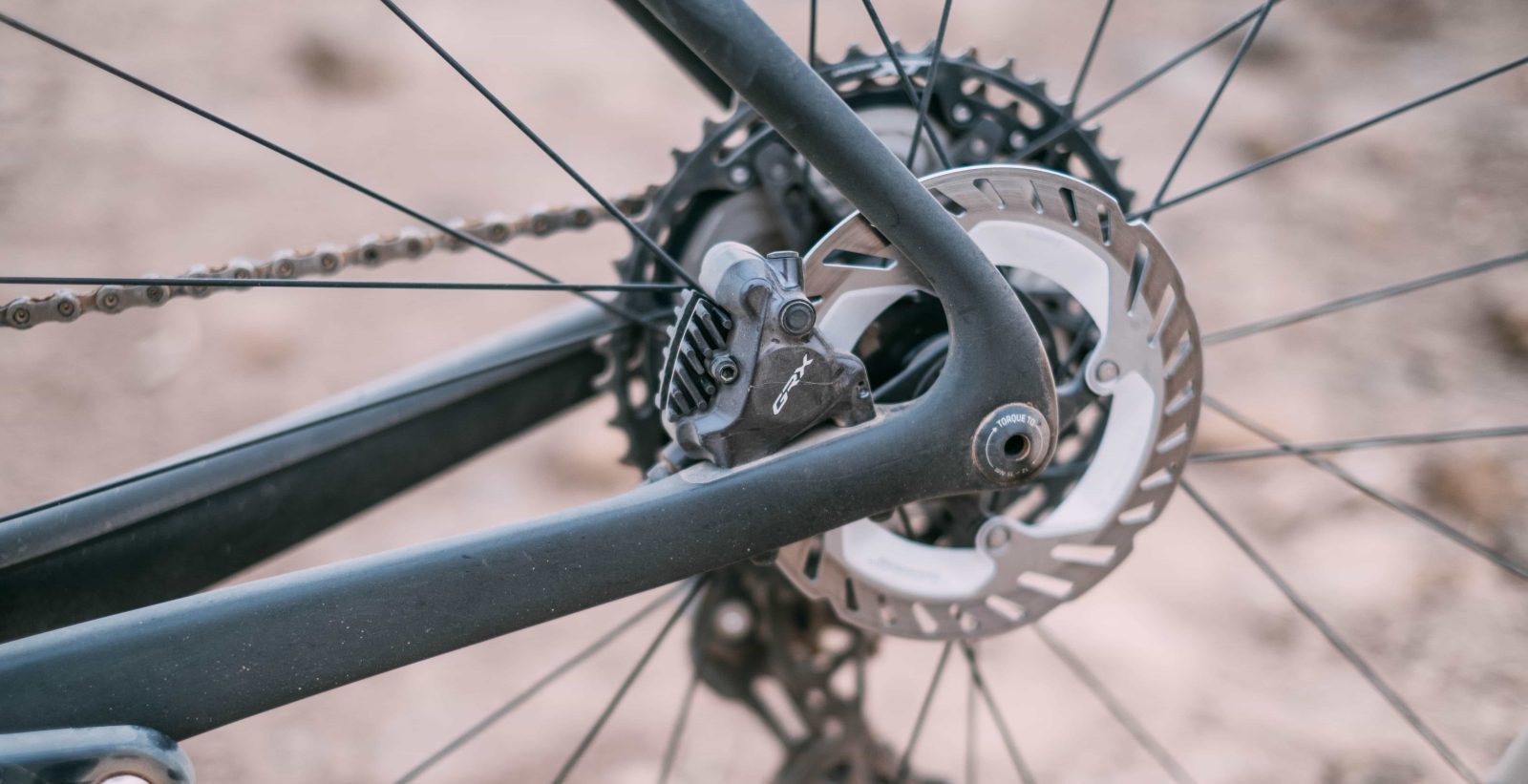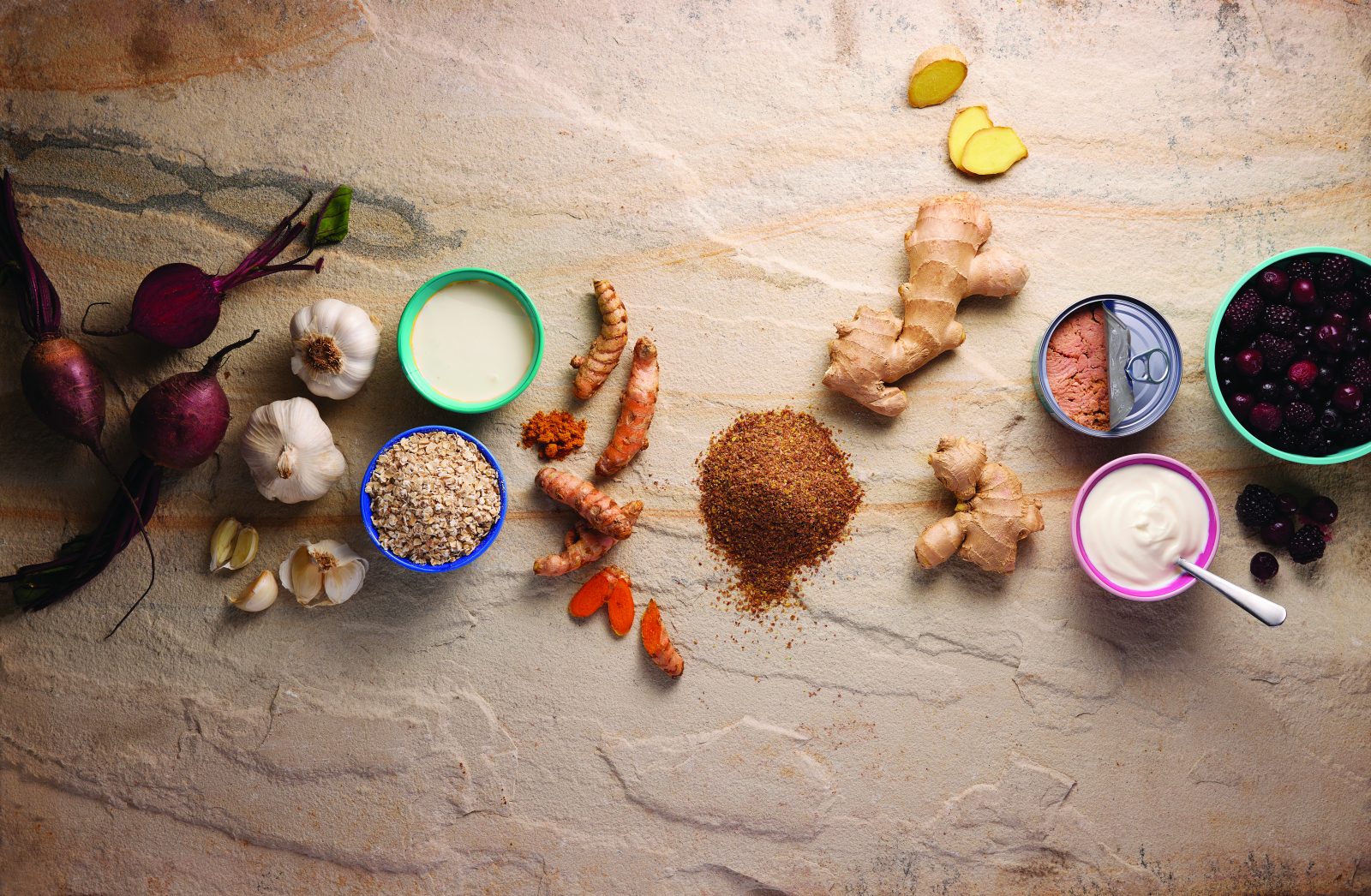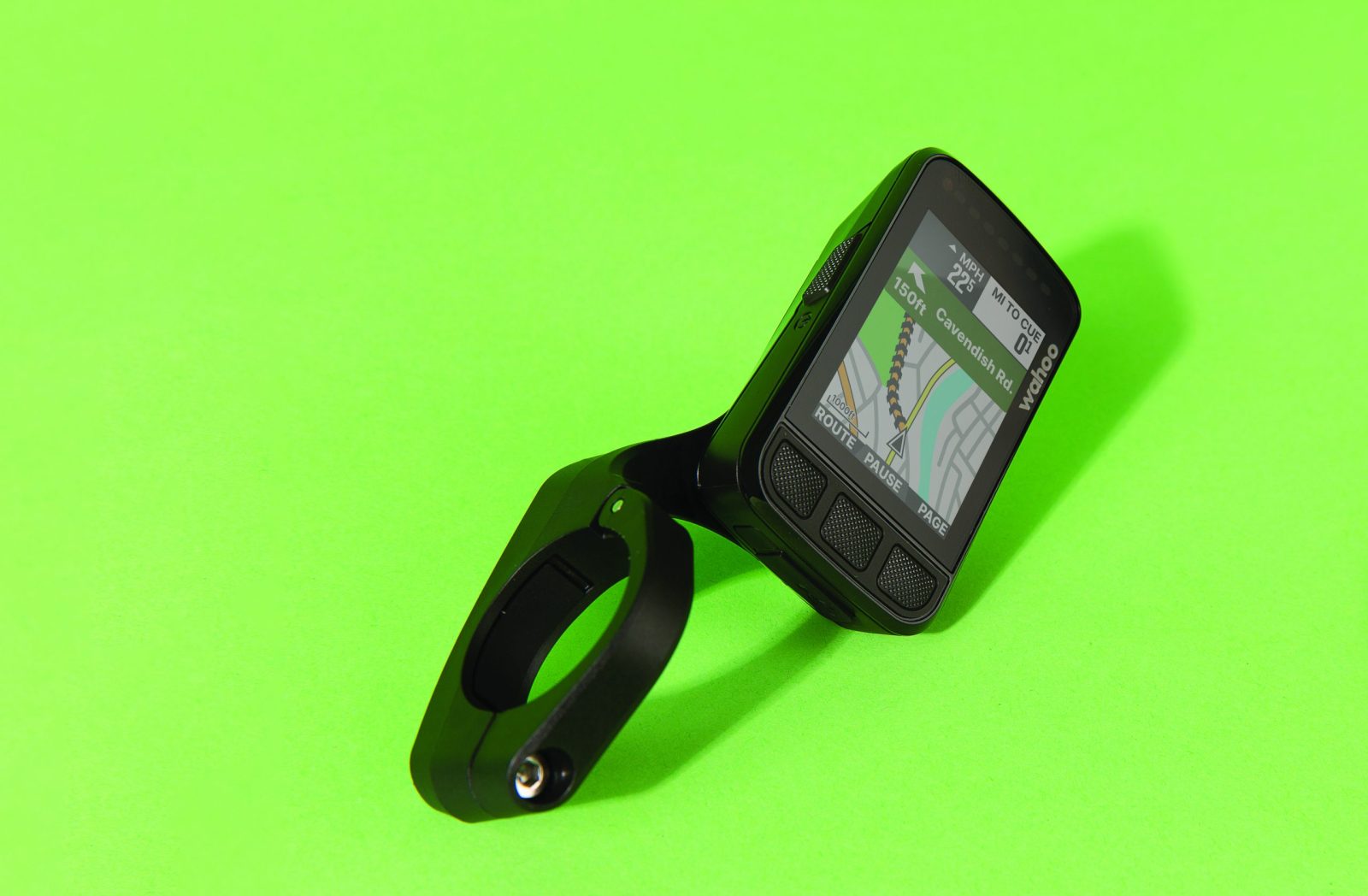The Australian National Road Race Champion and Lidl-Trek rider chats to Cyclist about her unusual path into elite cycling, misconceptions about the sport, and why she likes to ride Mount Nebo Road from her European base in Spain

Interview JACK LYNCH
Cyclist: Right – let’s begin with your season to date! It started off so brilliantly with a National Championship win in January. Since then, it’s been a cycle of sickness and injury.
How are you feeling about 2023?
Brodie Chapman: Yeah, it started great then rapidly went downhill, but you can’t catastrophise things. After racing in Australia with my new team and being super motivated, I got COVID before I was meant to go to the UAE Tour.
I’d had it before so I thought it would be asimilar experience, but I just got super sick and underestimated the time I needed to recover from it properly.
Athletes are susceptible to upper respiratory infections, because when you exercise at a high intensity you suppress your immune system. Couple that with insane amounts of travel, cross-pollination of people and different cities and cultures and you’re at risk.
So, I’ve just kept getting sick. I eat, sleep, rest at home well – everything is accounted for. I’ve found solace in talking to other athletes who have experienced similar things, whether it’s riders who are on the men’s team or other female riders.
Then, not long after I felt like I was back, I had a crash in Gent-Wevelgem where I broke my sacrum and hit my head, so that took a bit longer to recover from than I expected
This all sounds super negative, but the more you’re in the sport, you kind of accept that it is part of it. The management of that and the recovery from it is actually part of your job.
You can’t just kick your feet up and think ‘well I’m sick now’ and that’s it. I feel like I’m on the way back now and that feels good. I’m looking forward to pushing it, doing my bit for the team and racing well again.
Cyc: Do you think your move to Lidl-Trek this year and the professionalism of the team has taken the pressure off you to get back racing even if you’re not 100 per cent? Or has it put on more pressure to continue to race alongside some of the best riders in the world?
BC: I did feel a bit of pressure to race again, but it’s not like the team’s saying: ‘We’re paying you, so we expect you to race.’
They just expect that you are professional in everything you do, whether that’s recovering from injury or illness or listening to team orders and riding for the squad. Being on Trek has been a really positive thing in that respect.
Cyc: Despite setbacks, you must back yourself in as someone who came to the pro peloton relatively late in life (aged 26). I suspect you didn’t have a pathway mapped out. What was your pathway from obscurity to the elite ranks?
BC: My pathway was just being pretty obsessed with bike riding. I was always athletic at school, but I was never in any high-performance squad or anything.
I got into bikes because I wanted to get a BMX when I was in high school – I thought it would be sick to get to the skate park and ride around.
I eventually got a job at a bike shop because I thought if I worked at a shop I could get a discount on an Eastern BMX or something. Anyway, that just led to being full gas into the community.
I got into downhill and mountain biking heaps and road riding was just another thing. Some of the guys were doing bunch rides from the shop and I thought that sounded cool – I’ll do that too.
From there the progression has come from wanting to get better, or testing myself against other people. I went on the bunch ride and I was dropped and I was like, I’ll do whatever it takes not to get dropped.
Then I was like: Now I want to swap off at the front… now I want to do a race… now I want to win a race… now I want to be in B-grade… A-grade… now I want to do the NRS. I want to see how I can go against better people and it’s always been quite specifically against others.
I don’t compare myself against myself too much. I just want to be amongst it.

Cyc: Given you had no high-performance pathway, it’s likely you’re still improving. Do you have the belief that even though 2023 been a disappointment, you can be back better than ever next season?
BC: It’s more complicated than just getting better and winning races. Obviously, I’ve made my way through to one of the best teams in the world and I need to keep playing my role, riding to my strengths for my job security.
Because I did come to the sport with little experience in road racing – I was strong and had pretty good bike skills – but I knew very little about road racing at all. I still have a lot to improve on.
However, I have a lot of life experience and that helps me out as a professional cyclist. For some riders, particularly male riders, there are a lot of pathways from junior through to professional.
So I think people like me who come into it late may have less opportunity to become elite. I think having worked with other people before, knowing how to communicate or how to get over things when they go wrong – that doesn’t come from cycling, that comes from being a regular human.
Cyc: How do you feel then about riders aged 11 or 12 being encouraged to ride with power meters and train, rather than just having fun with their friends?
BC: Yeah, I think it’s problematic. But if feels like everyone is starting at that age, and that’s why the level is going up. The men’s peloton is so god damn elite – no one is there by accident. Short of some sponsorship signings, no one is there because they fell into it.
There are a lot of extremely talented riders who want to be in the WorldTour who just never will be. I think young athletes need to know they have value outside of their sport, because at that age you’re just not emotionally mature enough.
Part of the reason they are so good is because they are driven and energetic and less risk averse. But I think it becomes problematic when they don’t live up to the expectations invested in them.
There are young men and women being signed for hundreds of thousands of euros – that has to be a lot of expectation. I admire these people can go into it at that young an age, but I’m not that envious of it.
Cyc: What about on the flip side of making lots of money from riding a bike. Do you think the cost of cycling is becoming prohibitive for participation?
BC: Yeah I do, but also at the end of the day, life isn’t fair. There are opportunities you have depending on your background. For sure, cycling is an expensive sport. I didn’t have a new bike until I was an adult and could save up – while working at a bike shop – to buy a new bike.
There are plenty of talented people who just don’t have the opportunity. There are kids who have fancy bikes and there are kids who might be really good, but their parents can’t afford it.
I think it’s on clubs and organisations to make cycling more accessible in a way that it isn’t just for wealthy people.
Track cycling is one discipline where the bikes are less expensive and clubs have bikes available for people to try – so they can come to the velodrome and, if they enjoy it, they can consider whether it’s worth investing in.
Some countries’ clubs have road bikes… because kids grow. And even cost of racing is expensive in Australia. Even for me as a person in my 20s I had to pick and choose my races because it was expensive.
And then if you have any issues with your equipment it’s expensive, and then your kit is expensive, then your helmet’s expensive even. I think, like a lot of things, it starts by making it expensive in a practical way.

Cyc: Do you think this expense makes cycling is inaccessible from a social perspective?
BC: No, I think people perceive cycling is more exclusive and cliquey than it actually is. I came in as a female uni student riding in kit I’d got from a friend, on a pieced-together bike, and I rode with businessmen who I’d never have anything in common with.
Never once did someone turn me away because I didn’t have Dura-Ace or I looked ridiculous in my kit. It just appears to be exclusive, but people are actually quite welcoming.
Cyc: You’ve had your fair share of recovery and rehab in 2023 and I know you’re a FulGaz ambassador. You could probably choose to be an ambassador to any training platform. What do you like about FulGaz?
BC: I find indoor training pretty boring. You’re not going anywhere, you have no momentum and nothing to look at.
But the whole thing with FulGaz is you have a screen in front of you which shows you all these different parts of the world, and the road in front of you emulates the road feel through your ergo. If you’re looking at a climb, it actually feels like you’re on a climb.
It gives you a point of focus too, so when I’m using it as training, it’s similar to riding outdoors.
One of my friends was using FulGaz to train for the time trial world championships and she said it’s helpful to her because it’s so challenging to do an all-out effort on open roads, because of the many potential dangers and other factors that can ruin that training, like red lights.
FulGaz is safe and controlled, and it’s close to the real course. I also use it to scope out places I want to go in real life. Sometimes I’ll select it on FulGaz and then try to hunt it down in real life. I also like that I don’t always have to ride in the rain or if the weather’s really cold.
Cyc: Do you have any favourite routes?
BC: Weirdly, I like to ride places I know really well. I live in Spain at the moment and when I couldn’t go home during the pandemic for two-and-a-half years, I rode places like Mount Nebo Road in Brisbane, which went past my old place.
Or even, god forbid, I went on Beach Road in Melbourne. It’s just a bit of comfort away from home – somewhere familiar. I even did virtual laps around Centennial Park in Sydney for a bit of fun and to see if I knew anyone on course.


